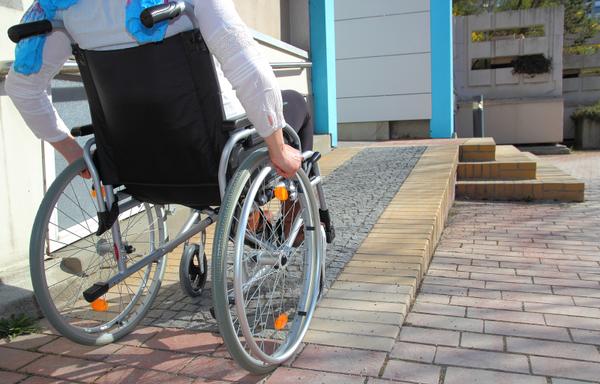Fair Housing Law
Fair Housing Law protects consumers from unfair practices related to the sale or rental of housing. Fair housing law makes it illegal to discriminate against people in the housing market due to race, color, national origin, religion, sex, familial status or handicapping condition.
What Is a Disability?
Fair Housing Law specifically protects individuals against discrimination in housing. Disabilities may be physical, including sensory concerns such as hearing loss, mobility or visual impairment. They may be associated with diseases, such as AIDS, or chronic alcoholism. Disabilities may also be mental including retardation or chronic mental illness. In order to be protected by Fair Housing Law, those with a disability must have documentation of having such a disability or be looked upon as having such a disability.
Reasonable Accomodation and Modification
People with disabilities often face barriers when it comes to using housing. They may need modifications such as wider doors, or accessible kitchen or bath features or other modifications in order to make the home accessible. They may also need to make accommodations or adjustments to the landlords rules in order to fully be able to use the living unit or surround grounds, such as allowing a service dog in a unit that doesn’t allow pets. Specifically, Fair Housing Law makes it illegal for landlords to:
1. Refuse to make reasonable accommodations in rules, policies, and services so that they allow tenants the opportunity to fully occupy and enjoy the use of the housing unit, and
2. Refuse to allow reasonable modifications to the unit if that modification allows the tenant to fully use the premises
In addition to the responsibilities that landlords have regarding fair housing law, individuals with disabilities also have responsibilities. In order to make modifications, tenants must first receive their landlord’s permission to make modifications. They must provide the landlord with a complete description of the modifications that are required and make assurances that the modifications will be performed in a professional manner. Tenants may be responsible for the cost of reasonable modifications. Additionally, the tenant may be required to return the housing unit back to its original condition.
Reporting Discrimination
If you or someone you live with has a disability and has experienced discrimination in the housing market, you can call the North Carolina Human Relations Commission at:
919-807-4420 or 866-324-7474.
References
Publication date: Feb. 25, 2015
Reviewed/Revised: Nov. 20, 2024
There is an alternate Spanish language version of this document here: La ley de equidad de vivienda y modificaciones razonables
N.C. Cooperative Extension prohibits discrimination and harassment regardless of age, color, disability, family and marital status, gender identity, national origin, political beliefs, race, religion, sex (including pregnancy), sexual orientation and veteran status.


